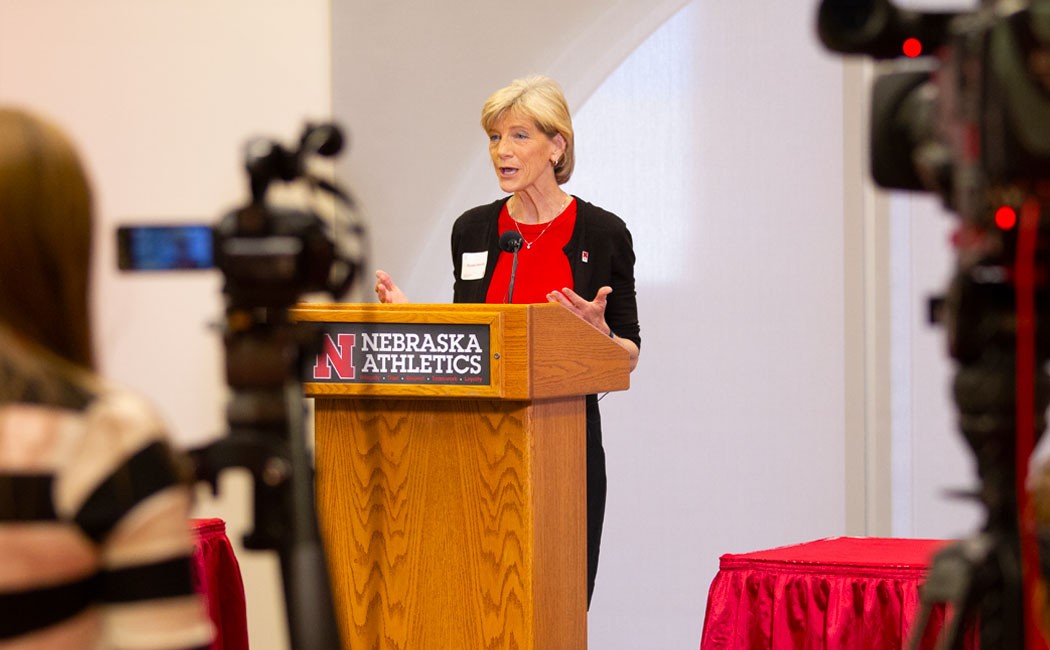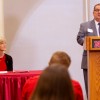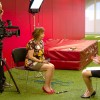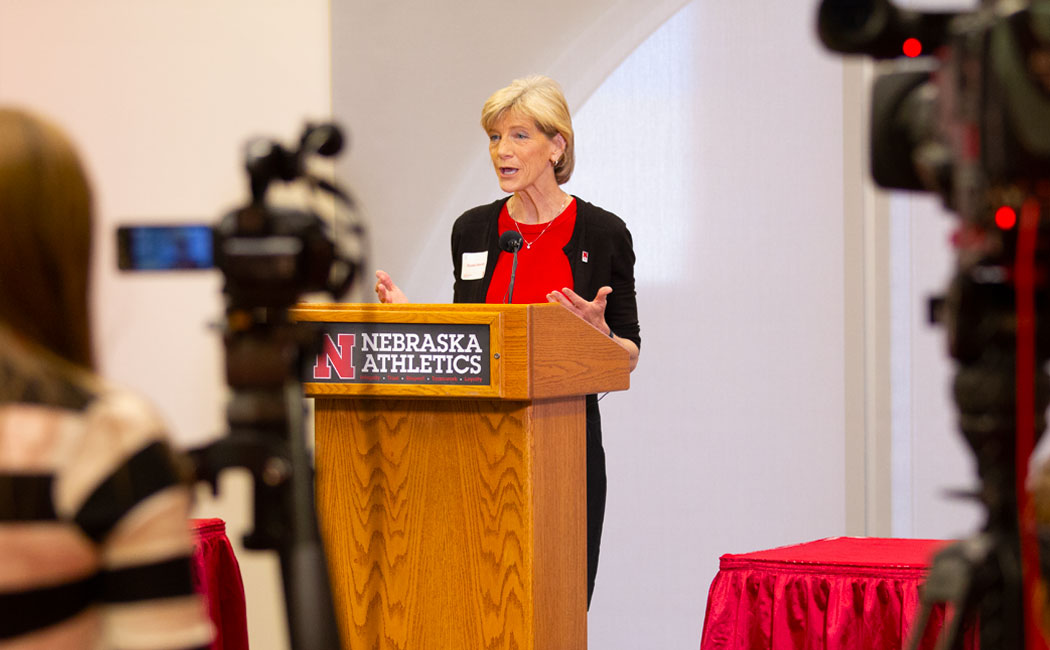
Journalists from across Nebraska gathered at Memorial Stadium April 8 to learn about some recent University of Nebraska–Lincoln standouts.
But these team triumphs did not come from Husker sports fields or arenas. They were wins generated by Nebraska researchers in various classrooms, schools and laboratories.
About a dozen reporters from local television and radio stations, newspapers, the Associated Press and other media outlets came to Nebraska Athletic Performance Laboratory for the inaugural Research Media Day, where they learned about a variety of research being conducted at Nebraska.
Co-hosted by the Office of Research and Economic Development and University Communications, the event was modeled after sports media days. It provided opportunities for researchers to highlight their work and forge lasting relationships with the media.
Susan Sheridan, director of the Nebraska Center for Research on Children, Youth, Families and Schools, led the center’s presentation on the value of teachers and parents as partners in early childhood education. CYFS Research Associate Professors Lisa Knoche and Lorey Wheeler also were on hand to answer questions and provide information about the center and its research focused on family-school partnerships.
Working as partners, parents and teachers create a safety net for children that position them for the best outcomes, academically and socially.”
Susan Sheridan, CYFS director
Along with CYFS, the event included research teams from the Center for Brain, Biology and Behavior, the School of Natural Resources/Resilience Alliance and the Nebraska Athletic Performance Laboratory.
Bob Wilhelm, vice chancellor for research and economic development, welcomed the media and urged them to keep an eye on Nebraska research. Following his comments, each of the four research team leaders made presentations on their organization’s work.
Sheridan outlined the importance of children’s early experiences, both in and out of the home.
“What happens in a child’s earliest years matters significantly for the rest of their lives,” she said. “What happens from birth to age 8 will have an impact on a child for years to come.”
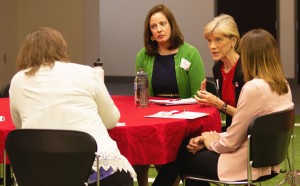
Sheridan said that while parents are a child’s first teachers, they cannot do it alone. Parents and educators working and communicating as partners, she said, typically generate the best results.
She noted the example of traditional parent-teacher conferences at school, which tend to follow the format of the teacher talking while the parent listens, almost as a bystander.
“In a true partnership, we rewrite that script,” Sheridan said. “As partners, parents are asked for their input, they are invited to share their ideas, and they’re encouraged and welcomed to help address any challenges the child might be facing.
“Parents need to be seen as part of a solution, and not the source of a problem their child might be experiencing.”
Sheridan said ever-expanding CYFS research is helping to improve academic, social-emotional and mental health outcomes by fostering high-quality, early life experiences among children and their parents, and providing teachers with evidence-based strategies to use in the classroom — and with parents.
“Working as partners, parents and teachers create a safety net for children that position them for the best outcomes, academically and socially,” Sheridan said.
